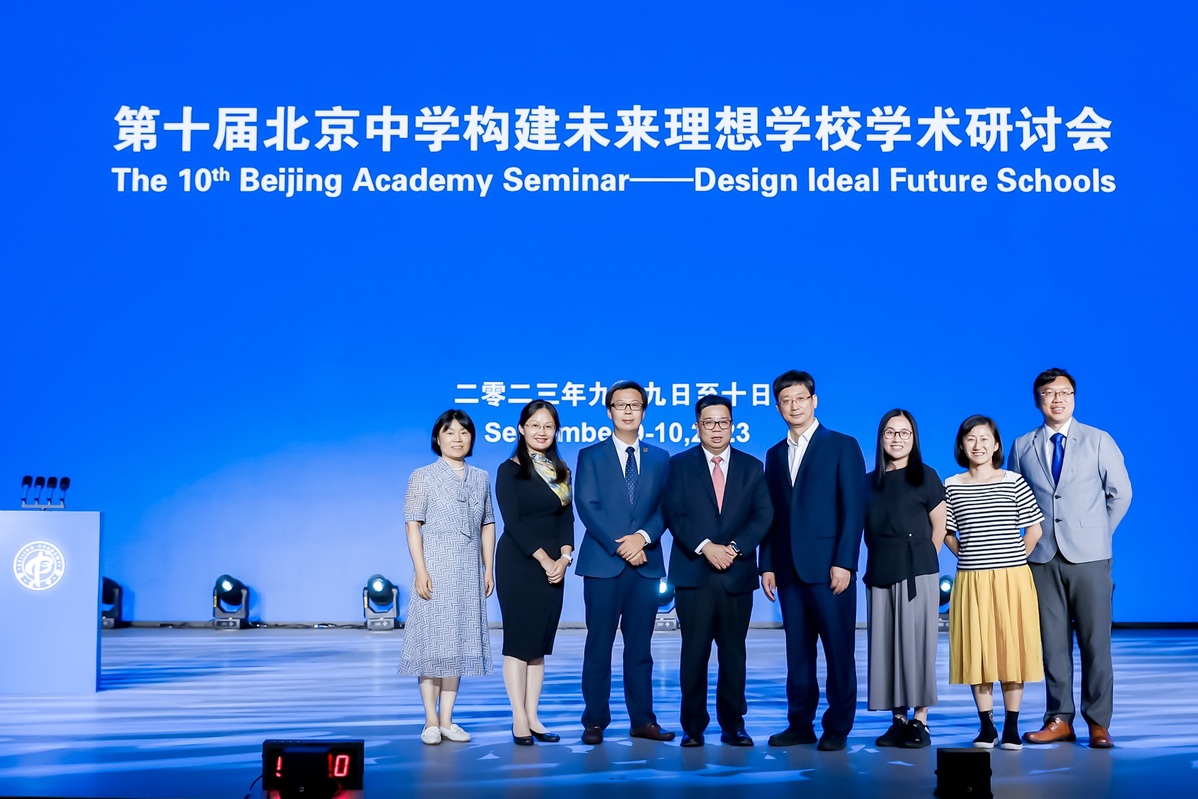Experts at Beijing seminar discuss reforms targeted at modernization goals


Educators and experts gathered in Beijing over the weekend to discuss moving the focus of basic education in China away from solely achieving academic results, to training innovative students and supplying enough talented workers to fuel China's modernization goals.
Li Yi, director of the Beijing Municipal Education Commission, said at the conference the "future is not far off". "When we talk about our country in 2035 and even 2050, the backbone of society is now sitting in school," he said, referring to timelines set by central authorities to construct China into a socialist modern country.
"To achieve that purpose, do we still need homework? Exams? We need to streamline our education without compromising the quality of schooling," said the director, adding that in the future a talented person will not only excel in most things, but also have great potential in a very specific field.
Li made the remarks on Sunday at the 10th Beijing Academy Seminar — Design Ideal Future Schools, a two-day event held at the school.
Xia Qingfeng, principal of the academy, made a work report about the school's development, with many education officials seated in the audience.
"The school was created in 2013, when China entered a new era, and was named after the national capital," he said.
Xia said the school had high aims when it was established. School authorities had always intended to make the institute a base for basic education innovation, a cradle for innovative students and a platform for international exchanges. "We've made an effort to encourage our students to speak up, rather than just being dictated by their teachers," he said.
Xia said the digital era has arrived, but that does not diminish the importance of cultivating a fully developed individual.
The key to making students innovative is the school creating an environment where innovation is everywhere, he added. "We reformed our curriculum and created a three-tier subject system," he said, referring to the addition of nontraditional subjects such as reading, fitness and leadership training.
"Over the decade, we've striven to create a 'fishing ground' where students can jump into the water and catch their own haul."
Wu Xiaojie, head of Chaoyang district where the school is located, said the school has become a platform for schools to share their experiences.
Chaoyang district is home to one-sixth of the city's educational resources, and Wu's administration has been working to promote quality education and make those resources readily available. More than 20,000 students are enrolled in the district's international schools.
Liu Limin, a former vice-minister of education who now serves as president of the China Association for International Education Exchange, said talented people are the key to making the nation powerful, and education is the central plank for the high-quality development of a populous country such as China.
"Basic education is the foundation for improving the quality of our citizens," he said.
More efforts should be made to guide students to learn and think, and help cultivate their curiosity, Liu said. More optional courses in basic education should also be made available, with a broader aim to provide personalized education and make the most of each student's potential, he added.
Prior to the keynote speeches, Beijing Academy students, dressed in colorful costumes, demonstrated talents ranging from tai chi, gymnastics, Chinese dance, and recited ancient Chinese poems, in a display of the academy's diverse extracurricular activities.
Sunday marked Teachers' Day, and was also the tenth anniversary of the public school's founding. Some alumni sent their well wishes from world-renowned universities.
He Jianxiong, Party Chief of Beijing Academy, said the seminar aimed to highlight what has been achieved by the school over the past decade.
A leaflet handed out to participants said the event was in line with the country's national strategy to build itself into a powerhouse in education, with a focus on training innovative students. The seminar invited outstanding figures from all walks of life to discuss how to cultivate talent in the new era.
China's basic education has long been seen as ultracompetitive as millions of students, supported by their families, work tirelessly to do well in the gaokao, or national college entrance examination, to secure a place at a university.
As a result, many schools are laser-focused on academic subjects and overlook the arts and other subjects that are not tested by the all-important exam. Some educators have called for more education reforms to nurture innovation and the all-around development of children.


















